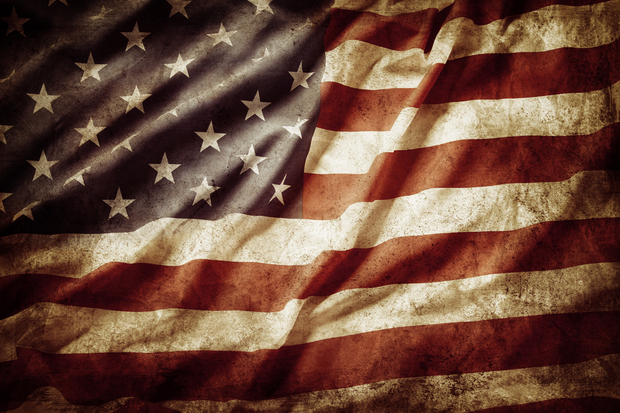
Is America Now an Oligarchy Nation? (Op-Ed)

Jeff Nesbit was the director of public affairs for two prominent federal science agencies. This article was adapted from one that first appeared in U.S. News & World Report. Nesbit contributed the article to Live Science's Expert Voices: Op-Ed & Insights.
Is the United States an oligarchy? Perhaps, two political scientists say, in a provocative new study making the rounds in political circles. The study has been submitted for publication, and if the researchers are right, it explains why certain issues with considerable popular appeal never seem to get traction at the national level in Washington, D.C.
The researchers' thesis? That the wealthiest, most powerful elites in American society control more than just the levers of finance — they control the terms of public debates, what people care about, and ultimately, what gets acted on at the national level in the U.S. Congress and the White House. [Popular Opinion on Climate Change Traced to Political Elites]
The wealthiest Americans care passionately about things like financial debt and budgets. What do most Americans put at the top of their list of concerns, according to polls from Gallup, Pew and others — Federal debt and budgets — not access to health care, or job training, or clean water, or gun control, or climate disruptions, or access to higher education, or efforts to alleviate poverty.
The two political scientists, Martin Gilens of Princeton and Benjamin Page of Northwestern, organized a team of researchers to study 1,779 survey questions between 1981 and 2002 on major public policy issues and broke them down by income levels and how organized interest groups saw their policy preferences enacted.
The conclusion? The wealthy move national policy, and average Americans are effectively powerless.
"Americans do enjoy many features central to democratic governance, such as regular elections, freedom of speech and [freedom of] association. [But] despite the seemingly strong empirical support in previous studies for theories of majoritarian democracy, our analyses suggest that majorities of the American public actually have little influence over the policies our government adopts," Gilens and Page wrote in a study that will be published this fall in the journal Perspectives in Politics.
Get the world’s most fascinating discoveries delivered straight to your inbox.
Essentially, the issues that the wealthiest care about are discussed nationally and enacted much more frequently than issues they don't care about, the researchers found.
What's more, if the wealthy and powerful don't like something, they stop it. If they do like it, then something happens nearly half the time.
"A proposed policy change with low support among economically elite Americans (one-out-of-five in favor) is adopted only about 18 percent of the time, while a proposed change with high support (four-out-of-five in favor) is adopted about 45 percent of the time," they wrote.
While this may not be surprising to people — after all, most people already believe that Washington caters to the rich and powerful — it does have profound implications about the way in which issues with generally popular support (like gun control efforts or climate change mitigation) are dealt with at the national level if powerful forces of status quo are determined to stymie political action.
"We believe that if policymaking is dominated by powerful business organizations and a small number of affluent Americans, then America's claims to being a democratic society are seriously threatened," the researchers concluded.
In fact, even in areas where a vast majority of Americans do care passionately about something, but it cuts against the interests of the wealthy and elite in America, the general public loses at the national level.
"When a majority of citizens disagrees with economic elites … or with organized interests, they generally lose," Gilens and Page wrote. "Moreover, because of the strong status quo bias built into the U.S. political system, even when fairly large majorities of Americans favor policy change, they generally do not get it."
Which is why the current U.S. Supreme Court's recent defense of unlimited spending by the wealthiest Americans in the political system has so many people unnerved. Such rulings will only make it even more difficult for popular issues that aren't in favor with elites to gain any traction.
It's also why the national media's endless fascination with "winners and losers" in national public polls may be a bit pointless and even harmful to an understanding of how things happen in the national political system.
If, as the Gilens and Page study indicates, the wealthiest and the elite set both the terms of the public debates and national political action, then it may not even matter all that much about the "winners and losers" in public polling.
The only thing that matters is what the wealthiest Americans and vested business interests think — because that's what will be debated and enacted. Which is, for those paying attention, the definition of an oligarchy, and not a democracy.
Nesbit's most recent Op-Ed was "God and the Gay Christian." This Op-Ed was adapted from "Oligarchy Nation," which first appeared in Nesbit's column At the Edge in U.S. News & World Report. The views expressed are those of the author and do not necessarily reflect the views of the publisher. This version of the article was originally published on Live Science.
 Live Science Plus
Live Science Plus






